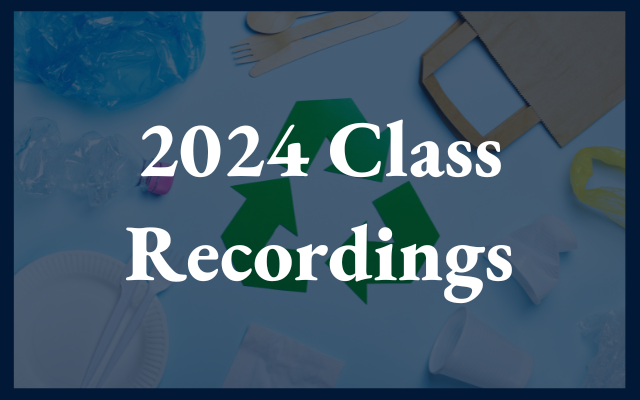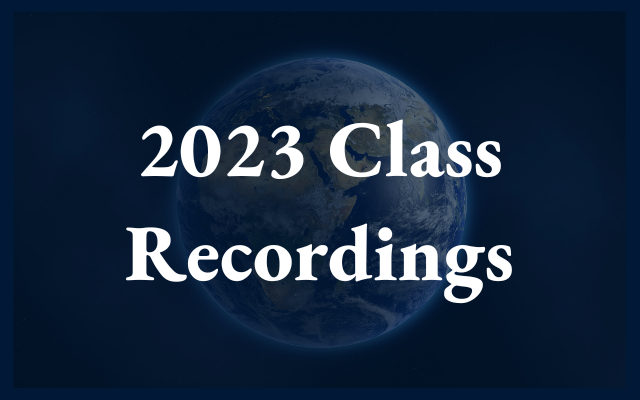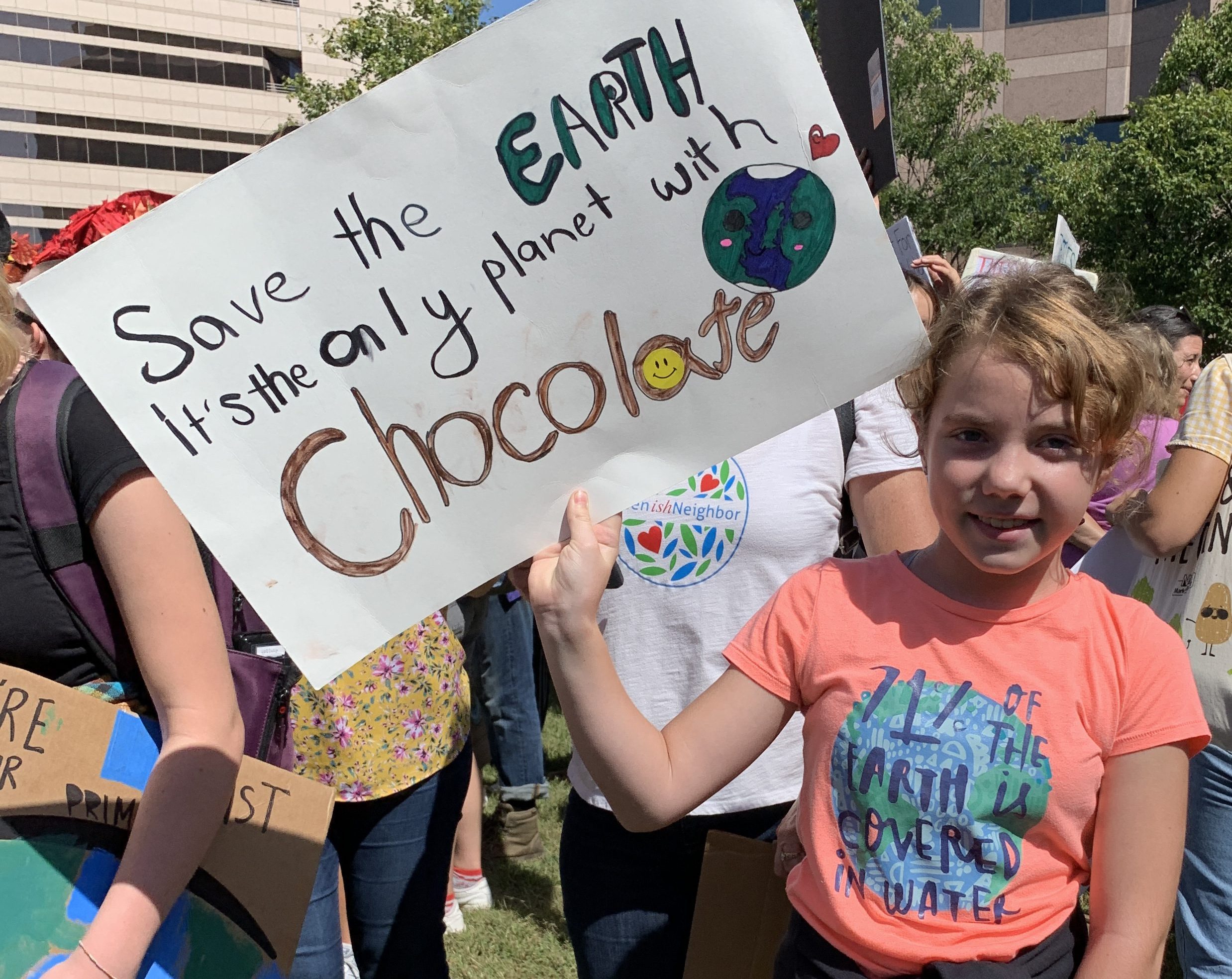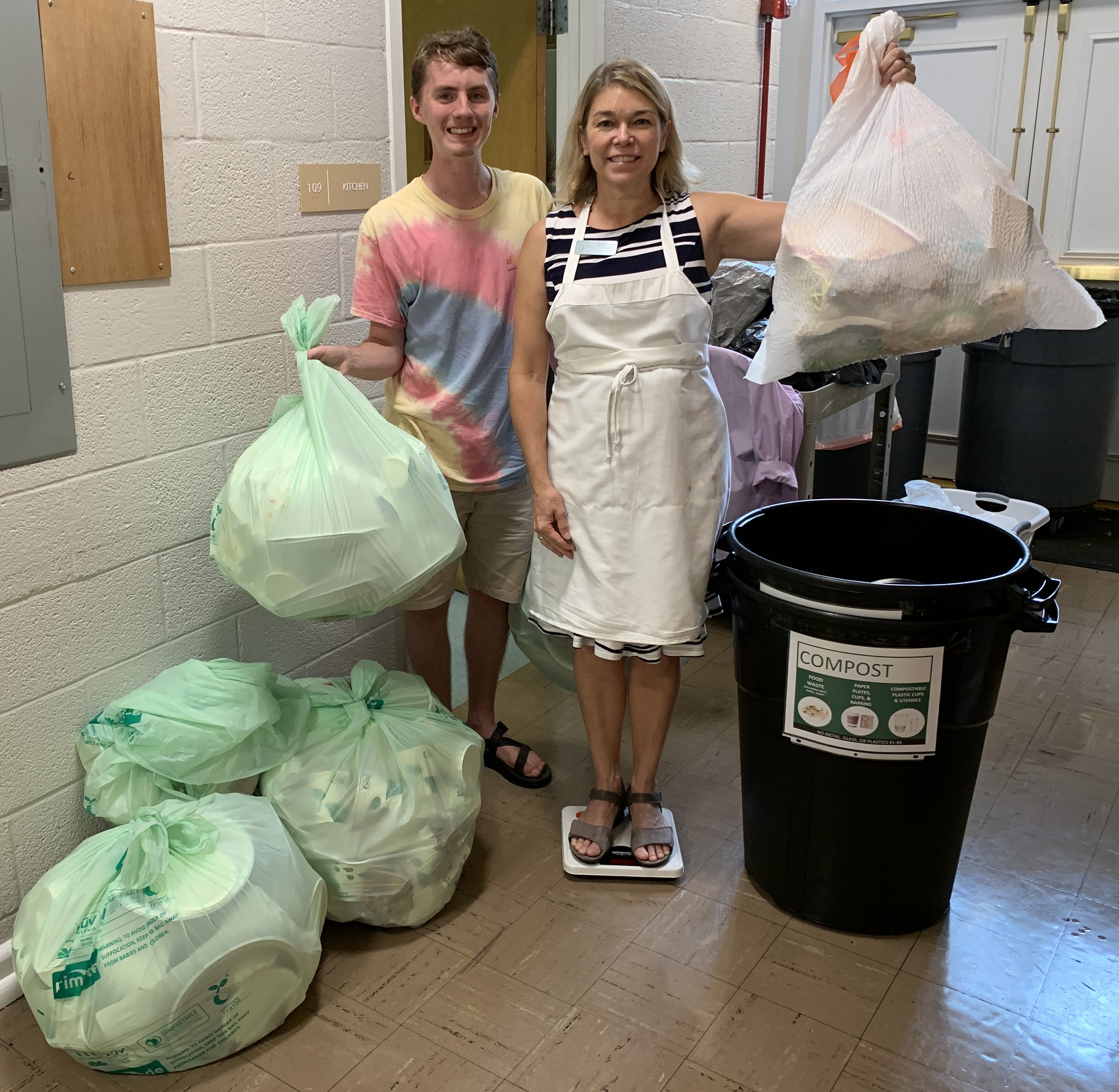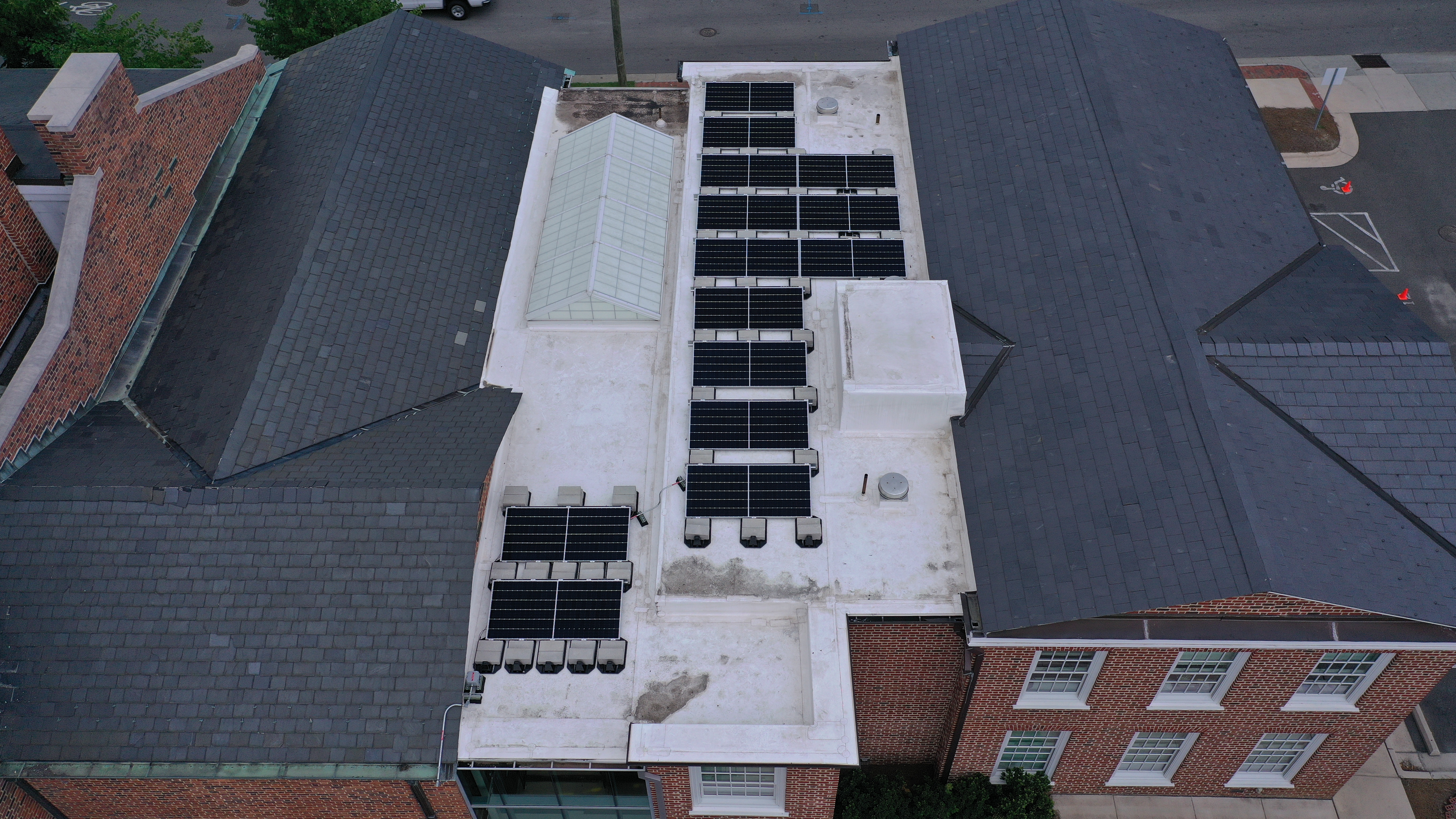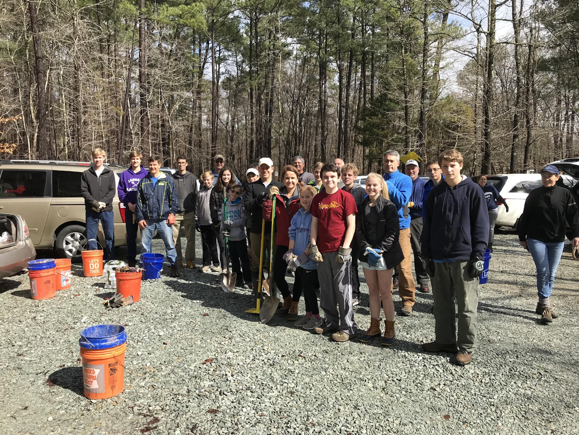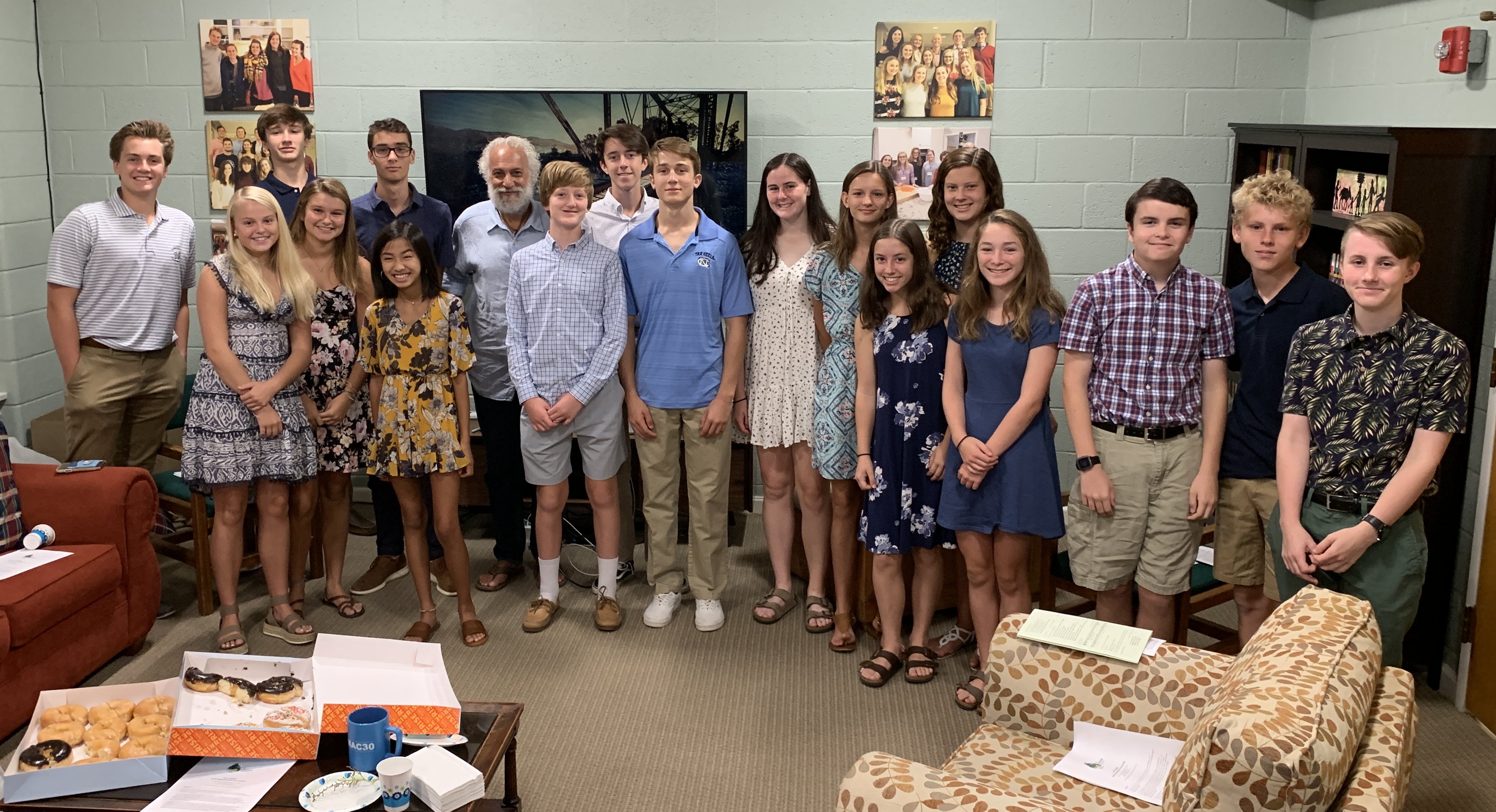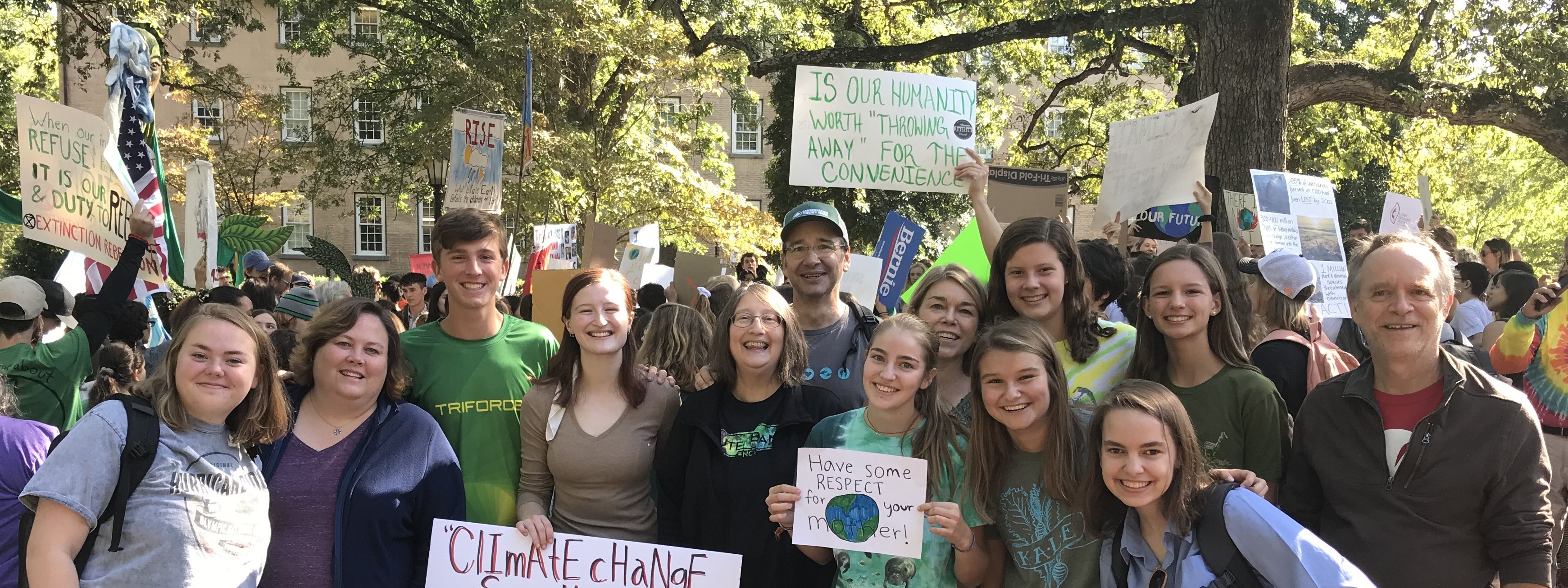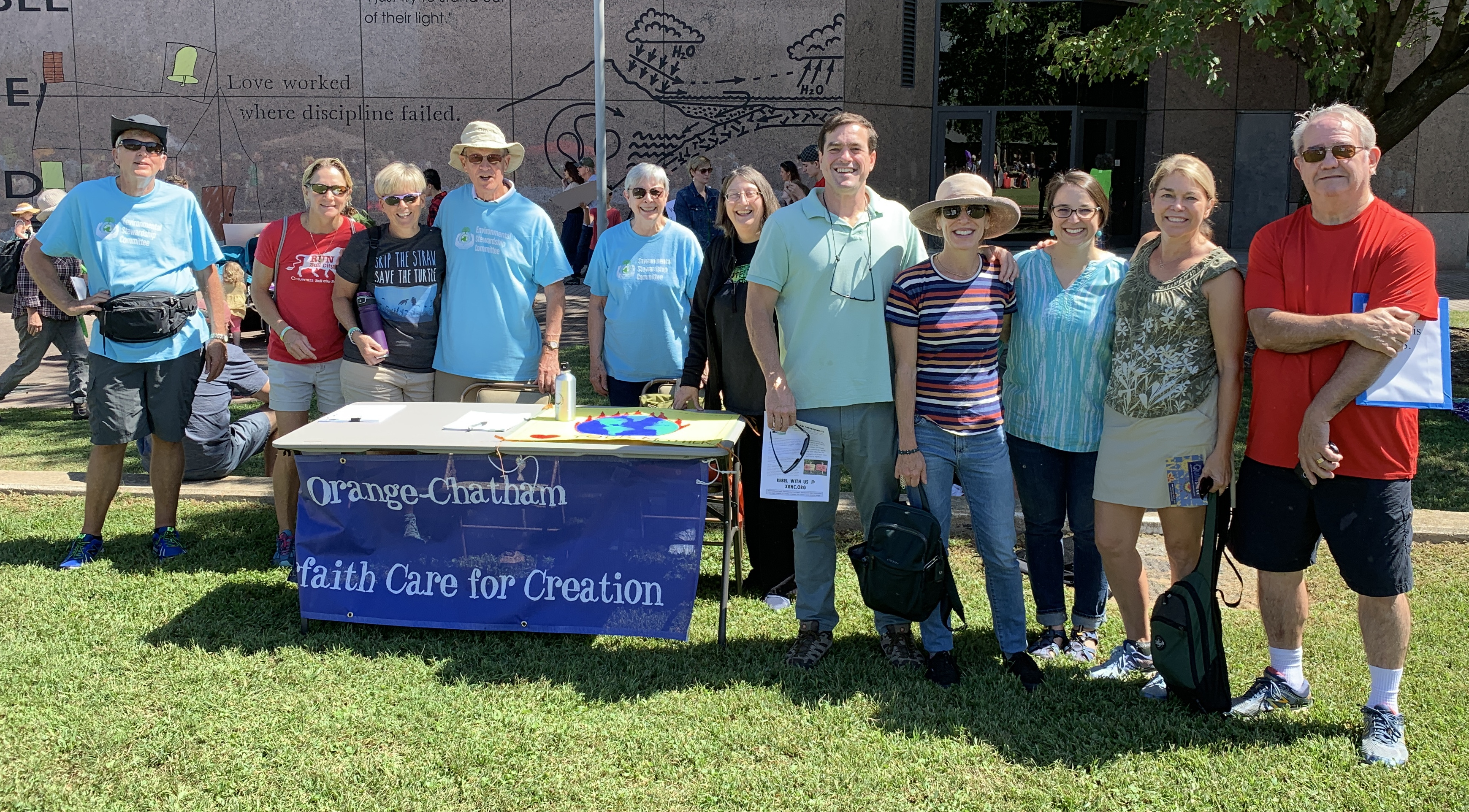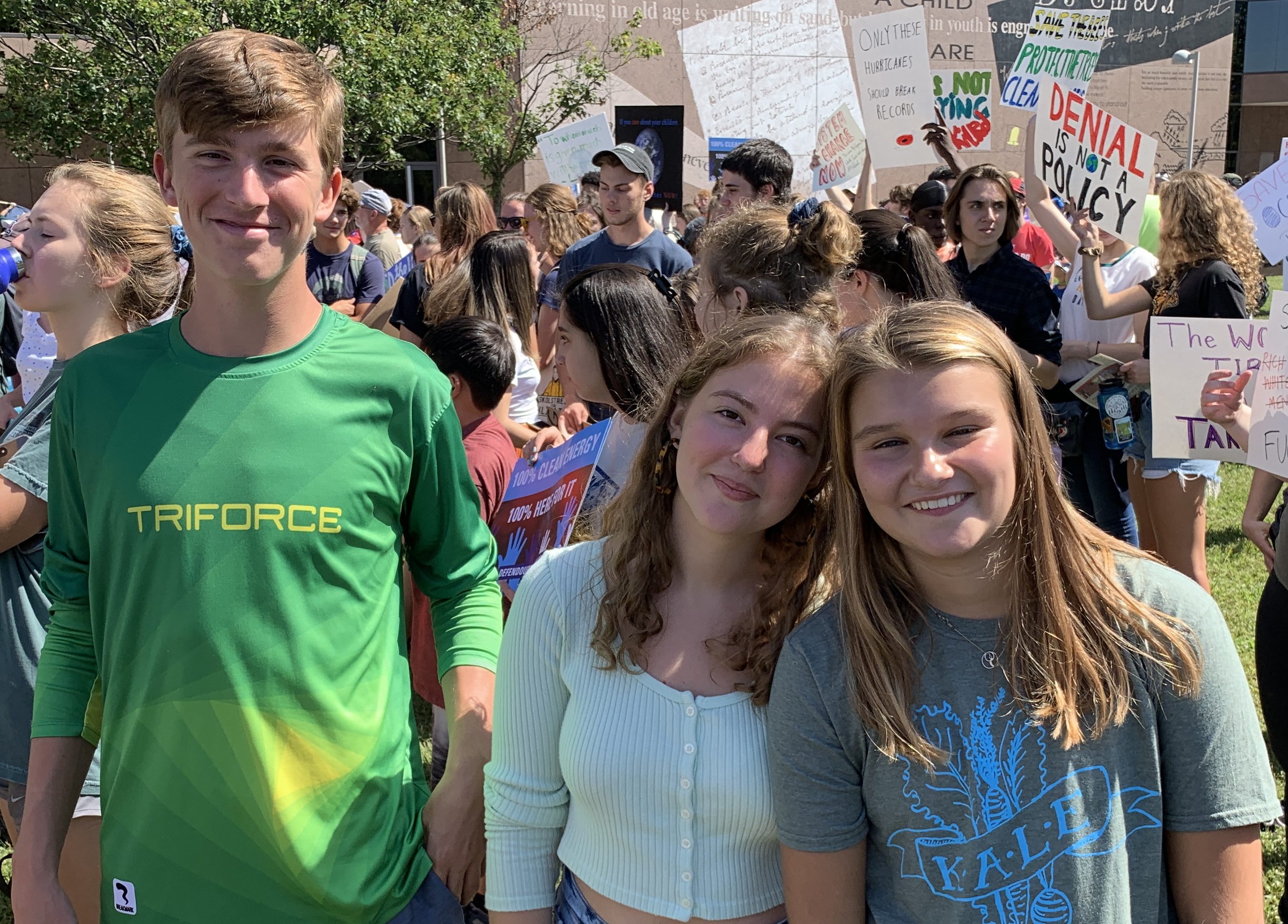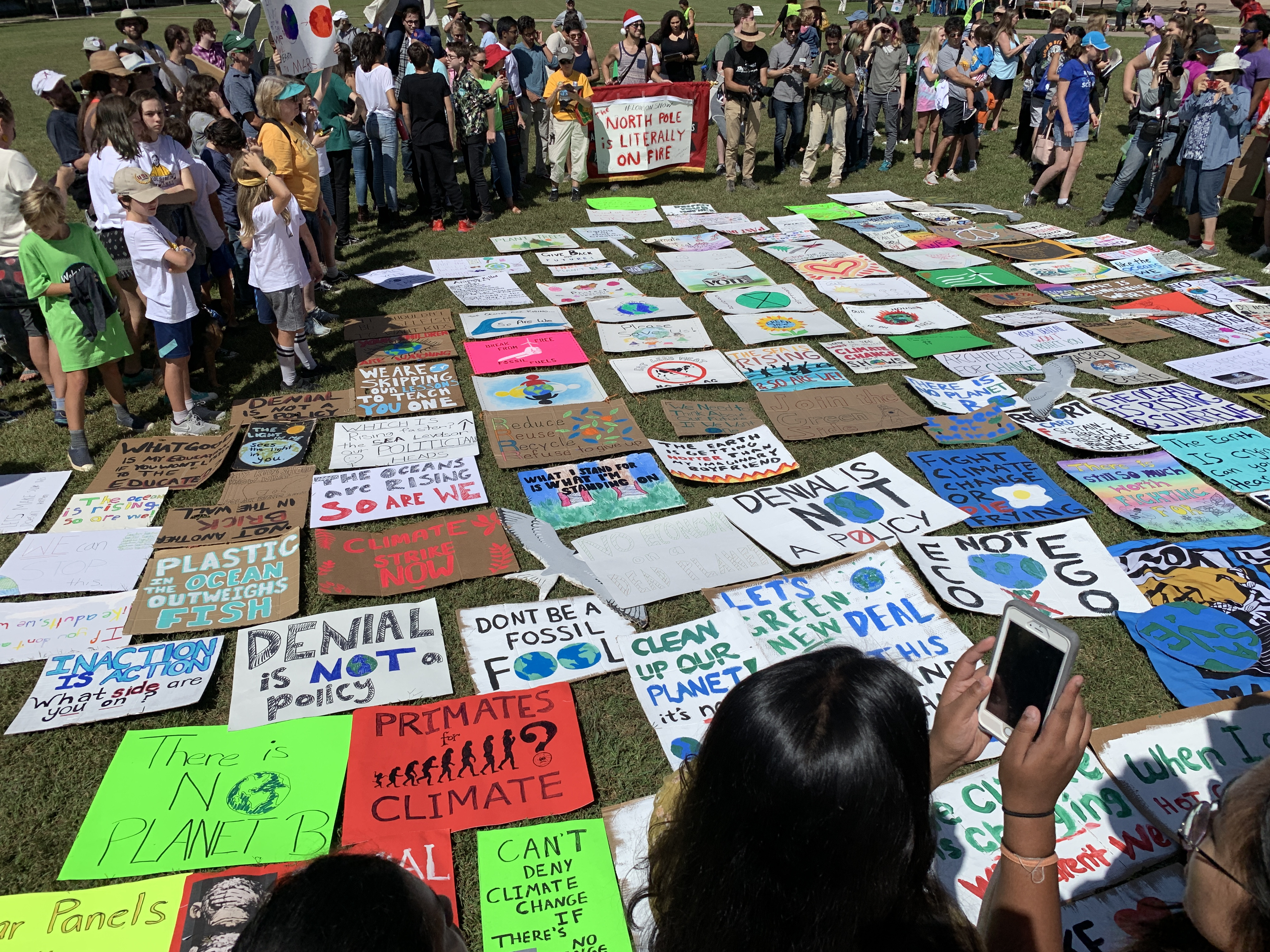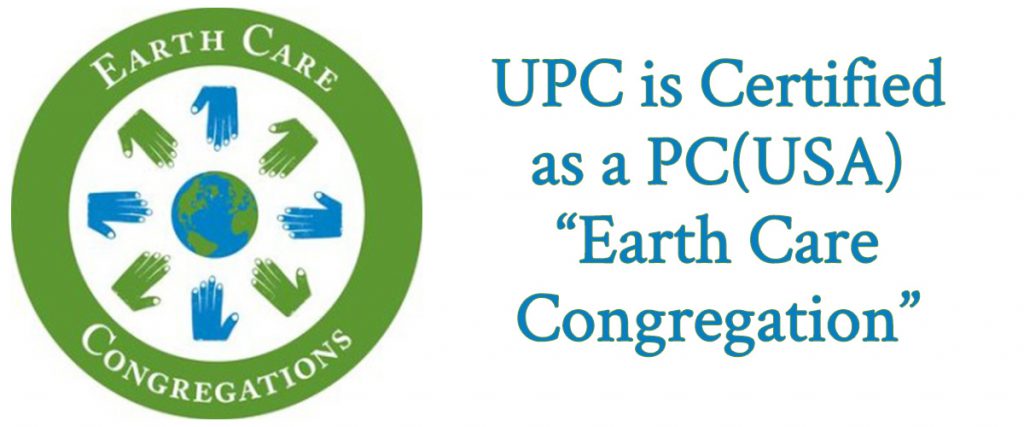
University Presbyterian Church is certified as an “Earth Care Congregation” by PC(USA)’s Presbyterian Hunger Program. Started in 2010, the Earth Care program inspires congregations to care for God’s earth in a holistic way by integrating earth care into all aspects of church life.
Churches must be re-certified as Earth Care Congregations at the beginning of each year based on new earth care actions in worship, education, outreach, and facilities. UPC’s Earth Care Team hopes the congregation will be inspired to become even better stewards of creation through our ministry and life together.
Join the NexTrex® Challenge!
If we collect over 1,000 pounds of acceptable plastic in a 12-month period, UPC will win a Trex® composite bench made of recycled plastic! Click the button to learn more!
Take the UPC Earth Care “Triple Stream Challenge”!
Additional Resources
Take Action
UPC Composts!
Recycling Resources
Solar Resources
Take Action!
There are lots of ways you can be part of our Earth Care initiatives, both at UPC and at home! At UPC, you can take action by:
Bringing a coffee mug to church: After enjoying your warm beverage, take your mug home, wash it, and bring it back for a refill of coffee and fellowship the following week. We also welcome donations of surplus clean mugs (traditional or travel) to leave at the coffee machine so that we can share with those who forget.
Composting at church: Help us with our composting efforts by putting all compostable materials (food waste, napkins, compostable cups and plates) in our compost bins located around the building. In UPC’s bathrooms, throw used paper towels — and nothing else — into bins marked “Paper Towels Only (to compost!).”
Recycling your worship bulletin: If you don’t plan to take your worship bulletin home with you, please recycle it in one of the recycling bins in the narthex or throughout the church. Worship bulletins are NOT compostable since they contain metal staples.
Joining the UPC Compost List to compost at home: Available for UPC members, staff, and UPPS staff only; click here to learn more.
Taking the PC(USA) Climate Care Challenge: pcusa.org/climatecarechallenge
More Ways to Take Action: Learn
John Wilson – North Carolina Climate Stories
Watch and share the North Carolina Climate Stories videos produced so far (approx. 3 min. each): https://vimeo.com/212961883
Watch these 6 minutes of video excerpts from a 2010 sermon titled “The Moral Math of Climate Change” by writer, Middlebury College professor, and 350.org founder Bill McKibben at Hancock United Church of Christ in Lexington, Massachusetts.
- The edited excerpts are here: vimeo.com/291399557/29c3772e5b
- More about Bill McKibben is here: middlebury.edu/schools-abroad/people/bill-mckibben
Read these two, recent articles about combatting climate change:
I work in the environmental movement. I don’t care if you recycle. Stop obsessing over your environmental “sins.” Fight the oil and gas industry instead.
How to Stop Freaking Out and Tackle Climate Change Here’s a five-step plan to deal with the stress and become part of the solution.
More Ways to Take Action: Advocate
NC Interfaith Power & Light
NCIPL’s Advocacy Tookit: ncipl.org/advocacy-toolkit/
Join NCIPL’s Youth Leaders Initiative: ncipl.org/youth-leaders-initiative/
Participate in NCIPL’s Faith Climate Action Week: faithclimateactionweek.org
Your voice matters.
Write an op-ed or letter to the editor on the importance of environmental protection, creation care, and climate action. Use Scripture.
Call your senators and other elected officials. Hold your leaders accountable to this moral work. Vote with all of God’s creation in mind.
Follow the Action Alerts from Interfaith Power & Light.
Purchase Carbon Offsets:
cooleffect.org/content/ecoamerica
Donate to NC Interfaith Power & Light – Your financial support helps this group empower NC youth in the work of climate justice, perform energy audits across the state, produce materials to aid faith communities in their sustainability work, perform lobbying visits in Raleigh and D.C. (largely regarding renewable energy), travel to congregations state-wide to preach and present, and so much more!
Citizens’ Climate Lobby Presbyterians Action Team
PC(USA) action alert encouraging Presbyterians to “Take Action Now and tell your member of Congress to Support H.R. 763: The Energy Innovation and Carbon Dividend Act.” votervoice.net/PCUSA/Campaigns/68918/Respond
Join Citizens Climate Lobby (CCL): CitizensClimateLobby.org
Join CCL’s Presbyterians Action Team: Presbyterians Action Team – Group Home – CCL Community
CCL opportunity to write your members of Congress if you didn’t have a chance Sunday: citizensclimatelobby.org/write-congress-now/#/14/
To join CCL’s dialing campaign for Senators Tillis and Burr, email Prakash Bhave at pbhave@yahoo.com
CCL’s Raleigh/Durham/Chapel Hill chapter meets the 2nd Saturday of each month from noon to 2 pm at Eno River Unitarian Universalist Fellowship, 4907 Garrett Rd., Durham.
citizensclimatelobby.org/chapters/NC_Raleigh_Durham
Standing Up For Land and Water Conservation
Read Jay Leutze’s wonderful, award-winning book, “Stand Up That Mountain,” the compelling, true story of a North Carolina outdoorsman who teams up with his Appalachian neighbors to save a treasured landscape from being destroyed. www.flyleafbooks.com/book/9781451682649
Call Senator Tillis and ask him to co-sponsor Senate bill 1081, the bill to fully fund the Land and Water Conservation Fund
Capitol Switchboard: 202-224-3121
(You can also call David Price and Richard Burr to thank each for supporting the LWCF.)
Below are several links for taking action and getting involved on a federal, state and local level:
FEDERAL
Land & Water Conservation Fund Coalition’s “Take Action” page: lwcfcoalition.com/blog/contactyourreps
LWCF Funded Projects in North Carolina
STATE
Land for Tomorrow coalition’s “Take Action” page: (for state of North Carolina conservation funding): land4tomorrow.org/act/
JOIN YOUR LOCAL LAND TRUST!
Triangle Land Conservancy: triangleland.org
Eno River Association: enoriver.org
Southern Appalachian Highlands Conservancy (Jay’s land trust, based in Asheville): appalachian.org
Find your local land trust: findalandtrust.org/land-trusts
UPC Earth Care Pledge
PC(USA) Earth Care Pledge (affirmed by UPC Session 2/14/19)
Peace and justice is God’s plan for all creation. The earth and all creation are God’s. God calls us to be careful, humble stewards of this earth, and to protect and restore it for its own sake, and for the future use and enjoyment of the human family. As God offers all people the special gift of peace through Jesus Christ, and through Christ reconciles all to God, we are called to deal justly with one another and the earth.
- Our worship and discipleship will celebrate God’s grace and glory in creation and declare that God calls us to cherish, protect and restore this earth.
- In education, we will seek learning and teaching opportunities to know and understand the threats to God’s creation and the damage already inflicted. We will encourage and support each other in finding ways of keeping and healing the creation in response to God’s call to earth-keeping, justice, and community.
- Our facilities will be managed, maintained and upgraded in a manner that respects and cherishes all creation, human and non-human, while meeting equitably the needs of all people. In our buildings and on our grounds we will use energy efficiently, conserve resources, and share what we have in abundance so that God’s holy creation will be sustainable for all life and future generations.
- Our outreach will encourage public policy and community involvement that protects and restores the vulnerable and degraded earth as well as oppressed and neglected people. We will be mindful that our personal and collective actions can positively or negatively affect our neighborhood, region, nation, and world. We will seek to achieve environmental justice through coalitions and ecumenical partnerships.
For more information, visit www.pcusa.org/earthcarecongregations
UPC Composts!
UPC partners with CompostNow, a commercial composting company. UPC’s CompostNow carts may be used ONLY for UPC functions, or by UPC members, UPC staff and UPPS (preschool) staff/teachers for our home compost.
**NEW AS OF MARCH 2025**
Compostable plastic bags and compostable plastic cups, bowls and utensils are NO LONGER ACCEPTED in Orange County’s Food Waste Diversion program, even if they are BPI-certified compostable. If you bring your compost to church in a compostable plastic bag, please dump your acceptable materials out of the compostable bag into our CompostNow carts, then throw the compostable plastic bag into the landfill dumpster.
Here are examples of what is commercially compostable in UPC’s CompostNow carts:
At all events involving food at UPC, we make an intentional effort to use and compost all compostable plates, cups, napkins, and food waste. This has reduced the amount of trash produced per event to just a few pounds (as opposed to 50+)!
Are you part of UPC and want to utilize this resource? Email JohnWilsonProductions@gmail.com to be added to the UPC compost list! You can also drop food waste and other compostable items at any of Orange County’s six FREE food waste drop-off sites.
Not part of UPC but want to compost? Sign up with CompostNow for home pickup service (first 2 wks free) at compostnow.org/offer/upc/ or take your compost to one of Orange County’s organic waste drop-off sites (Eubanks Rd., Walnut Grove Church Rd., Carrboro Farmers Market).
More Composting Information & Resources
If you have more questions about whether something is commercially compostable, email thedirt@compostnow.org. Below are examples of what CompostNow has told us:
- “paper cups lined with wax (rather than plastic) are compostable and can be included in your CompostNow bin”
- “most fast food cups are lined with plastic and are therefore not compostable.”
- “The paper bags fast food comes in are compostable, as well as paper materials like burger wrappers and paper fry bags!”
- “frozen food boxes are not compostable because the majority of them contain a thin line of plastic on the inside to keep things secure”
- “Both paper grocery bags and newspaper are compostable, but should be recycled if possible. If they are soiled with food/liquids and are not able to be recycled, they can be composted!”
- (re: shredded paper): “As long as the paper is plain computer paper and is not glossy/coated, it is fine to include in your carts!”
Commercial composting includes a greater range of allowed materials as compared to backyard composting. To learn more about the difference, check out: Commercial Composting v Backyard Composting
Watch the video from the Jan. 12 UPC Earth Care Sunday School class: Karin Mills & Linda Bourne, aka “Trashy Women”: “Composting, Recycling & Caring for Creation”
Read Why is better waste management and composting important to your faith organization? by Karin Mills & Linda Bourne
Like the “Trashy Women” on Facebook to receive their informative, inspirational and often hilarious posts!: facebook.com/KarinAndLindaGoGreen
Visit “Compost At Home” provided by Orange County Solid Waste Management
Recycling Resources
Orange County A-Z Waste and Recycling Guide
Orange County: What Goes in my Blue Recycle Cart? (including UPC’s Recycle Carts!)
Recycling 101 Webinar with Interfaith Creation Care of the Triangle (led by our own John Wilson!)
Solar Resources
In June 2022, we installed solar panels on the roof of the Dunham building to power lights for our parking lot.
Check out these other exciting solar projects at nearby churches and synagogues:
Solar Project | Pittsboro Presbyterian Church
Solar Energy Information – Chapel In The Pines
Project Solarize Kehillah – Kehillah Synagogue
Earth Ministry | Binkley Baptist Church
United Church of Chapel Hill’s Solar Journey
Solar Panels – The Community Church of Chapel Hill Unitarian Universalist
Resources for congregations considering solar:
Presbyterian Mission Agency: Solar
Presbyterian Mission Agency: Churches and solar energy
Solar Best Practices for Congregations – NC Interfaith Power & Light

